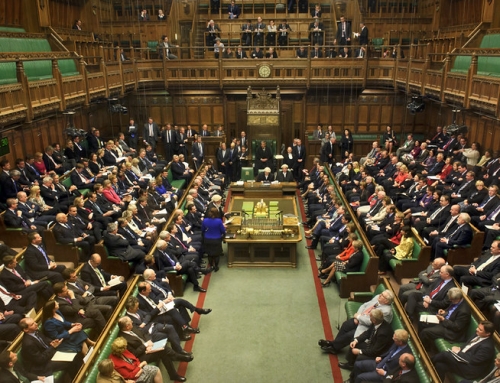Each year parents whose children are either starting school or moving to secondary school have to decide their preferences for the schools they would like their children to attend. If too many parents ‘choose’ a particular school then the admission authority for the school which may be the governing body or the local authority has to decide which applicants meet the admissions criteria for the school. So the admissions criteria chosen by the admission authority can be crucial, and parents can feel they might want to object to particular criteria.
But these criteria will have been decided long before the parents’ application process. The school admissions system operates on a two-year cycle. Admission authorities are required to publish their admission arrangements by in April in the first year, having consulted if they want to change them. These criteria will be those in force for admission to that school in September of the following year.
What should be on the Local Authority website?
The local authority should publish on its website how to find the admissions arrangements for all local schools (including academies and free schools) by the beginning of May. It is open to anyone to object to the Schools’ Adjudicator to any arrangements that seem to be unfair. The deadline for objections is June 30th.
Some local authorities have made it easier to find what you are looking for than others. You are looking for the determined admission arrangements for all local schools and a link to the Office of the Schools’ Adjudicator. It should be easy to find without too many clicks. Try searching for school admissions. For example the website might say –
Arrangements for admissions into schools are ‘determined’ following the outcome of a consultation. The School Admissions Code requires Admission Authorities (for example, Schools and the Council) to consult other local Admission Authorities and determine their school admission arrangements. The Local Authority is required to publish its determined admission arrangements together with those of all other Admission Authorities within the local authority by May 1st and you can find them here.(link) . Anyone can object about the arrangements to the Schools’ Adjudicator by 30 June. Any decision of the Adjudicator must be acted on by the admission authority. The Schools’ Adjudicator can be contacted at osa.team@osa.gsi.gov.uk
Also in September of that year the local authority should publish a prospectus to enable parents to visit their local schools and know their admissions criteria.
What if the information is not there?
If having raised this with your local authority the information required by the Code is still not there you can write to the Schools Adjudicator. The OSA has reported in the past about the need for local authorities to fulfil their obligations under the Code.
Where do you object?
Objections go to the Office of the Schools’ Adjudicator. There is a form on its website for objections. You can also post it to OSA, Mowden Hall, Staindrop Road, Darlington DL3 0JA. Other contact details for the OSA are phone 01325 735303, or email osa.team@osa.gsi.gov.uk
Whose decision are you objecting to?
The admission authority is the decision – making body and it is their decision you would be objecting to. For community and voluntary controlled schools the admission authority is the local authority; for all other schools (ie academies including free schools, voluntary aided and foundation schools) it is the governing body. The admission authority is required to consult if any changes are made and then each year ‘determine’ its arrangements. You can object to the adjudicator about any school, not just local ones and including academies and free schools.
Who can object?
The Code says that ‘Any person or body who considers that any maintained school or Academy’s arrangements are unlawful, or not in compliance with the Code or relevant law relating to admissions, can make an objection to the Schools Adjudicator.’ So this is a very wide eligibility, for example it does not restrict to you only objecting to arrangements of your local schools and it is open to organisations to object as well as individuals. This is a recent change brought in the Education Act 2011.
When can you object?
It is important to remember that you and admission authorities are working well in advance of when any admission arrangements come into force. The Code requires the determination of admission arrangements by 15th of April for admissions in the following year ie almost a year and half later. By the 1st of May the local authority has to have published on its website how to see the admission arrangements for all local schools including academies and details of how you object to the Adjudicator. Your objection has to be in to the OSA by the 30th of June and the office advises the sooner the better to allow time for consideration. The Office says if you miss the deadline, the adjudicator may still consider the objection – but only if there is good reason for not sending it earlier.
What you might object to
The Adjudicator must adjudicate on whether the provisions of the School Admissions Code are being met. So you need to go through the School Admissions Code finding any provisions which might not have been met. You can object even if the arrangements of the admission authority are unchanged from previous years.
- Paragraph 14 on page 6 of the Code says that ‘admission authorities must ensure that the practices and the criteria used to decide the allocation of school places are fair, clear and objective. Parents should be able to look at the set of arrangements and understand easily how places to that school are to be allocated’.
- The main parts of the Code dealing with oversubscription criteria are from section 1.8 onwards which says Oversubscription criteria must be reasonable, clear, objective, procedurally fair, and comply with all relevant legislation, including equalities legislation. Admission authorities must ensure that their arrangements will not disadvantage unfairly, either directly or indirectly, a child from a particular social or racial group, or a child with a disability or special educational needs, and that other policies around school uniform or school trips do not discourage parents from applying for a place for their child. Admission arrangements must include an effective, clear and fair tie-breaker to decide between two applications that cannot otherwise be separated.
- Section 1.9 onwards details what admission authorities must not do, and these sections require a careful study for evidence of whether you have grounds for objection.
- Can you find all the admission arrangements easily on the relevant website (school or local authority)?
- Did the admission authority consult on any changes to arrangements before they determined them?
- Are the admission arrangements up to date, ie do they refer to the correct year?
- Do the arrangements meet the requirements of any other legislation (Code page 28 onwards) for example the Equality Act 2010?
You could also object if other requirements of the Code are not being met. For example your Local Authority might not have fulfilled the requirement to have on its website how you can see the admission arrangements of all local schools and where to object.
What other information you may need to provide
You will need to provide copies of the admission arrangements to which you are objecting and any letters you have written and replies you may have received about your concern. But you do not have to raise objections directly before going to the adjudicator.
Where to get more information
If there is a local Admissions Forum its minutes might be available from your local authority. Look through the adjudicators’ previous decisions on the their website (nb not all adjudicator’s decisions relate to objections to admissions). This is a useful guide to what others might have objected about and whether their objections were upheld. You need to check in any case that there has not been a previous objection to the same admission authority. Have a look at the Chief Adjudicator’s Annual Report . It provides a useful background to what the Office of the Schools Adjudicator deals with.
Support our campaign
Join us to support our campaign for fair admissions. You can join on our website (where there is more evidence about the need to end selection) or send your contact details to –Comprehensive Future, PO Box 44327 London SW20 0WD or email info@comprehensivefuture.org.uk




